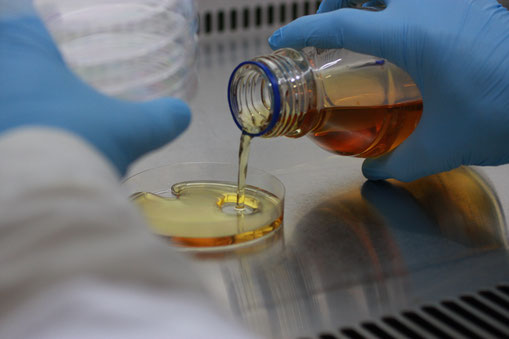Frequently asked questions
Can I receive a phage treatment?
Bacteriophages are seen as medicine, but have not yet been approved by the Dutch authorities. However, doctors can sometimes already use the so-called 'compassionate use clause'. We are working hard to make this possible.
Where can I go for phage treatment?
Bacteriophage treatments are currently only given in Georgia (Eliava Institute, Tblisi), Poland (Phage therapy unit, Wrocław) and in some cases in Belgium (Brussels).
What are the costs of treatment with bacteriophages abroad?
A treatment will cost several thousand euros. Ask your insurer if this will be reimbursed.
How is the Fagenbank funded?
The phage bank is running on donations. In the long term, the phage bank wants to charge service costs for supplying bacteriophages.
Can I collaborate with the Fagenbank?
Yes we are actively looking for partners.
What are antibiotic resistant bacteria?
These are bacteria that are no longer killed by antibiotics. Because of this a urinary tract infection, skin infection or ear infection will not stop.
Is treatment with bacteriophages better for you than antibiotics?
No, antibiotics are always the first choice. Only when antibiotics do not work, it is good to look for alternatives.
What are the benefits of bacteriophages?
Phages are very specific and do not kill 'good' bacteria that live in and on you. Antibiotics do this. This can cause an imbalance in your intestines, for example. Yet antibiotics are always a first choice.
What are the disadvantages of bacteriophages?
Finding out which phage you need is more work than prescribing antibiotics. Bacteria can also become resistant to phages. The effects of phages on the human body have not been well studied. Phages are not an approved medicine.
Can bacteriophages infect human cells?
No, bacteriophages can only attack and kill their own host bacteria. Phages are harmless to our own cells.
How long will it take before phage therapy is permitted in the Netherlands?
That is hard to say. The Dutch Health Service (RIVM) has information available about the state of affairs regarding the authorization of phages as a medicine.
What are the risks of phage treatment?
In 2018, RIVM issued a report on bacteriophages describing the risks.
How do bacteriophages work?
This simplified animation shows how phages work.
What types of bacteria do you have phages for?
The phage bank is currently being expanded. Below are already some types of bacteria against which we have phages.
Acinetobacter baumannii, Enterococcus faecalis, Klebsiella pneumoniae, Pseudomonas aeruginosa, Mycobacterium abscessus, Salmonella enteritidis, Staphylococcus aureus, Staphylococcus epidermidis, Escherichia coli





